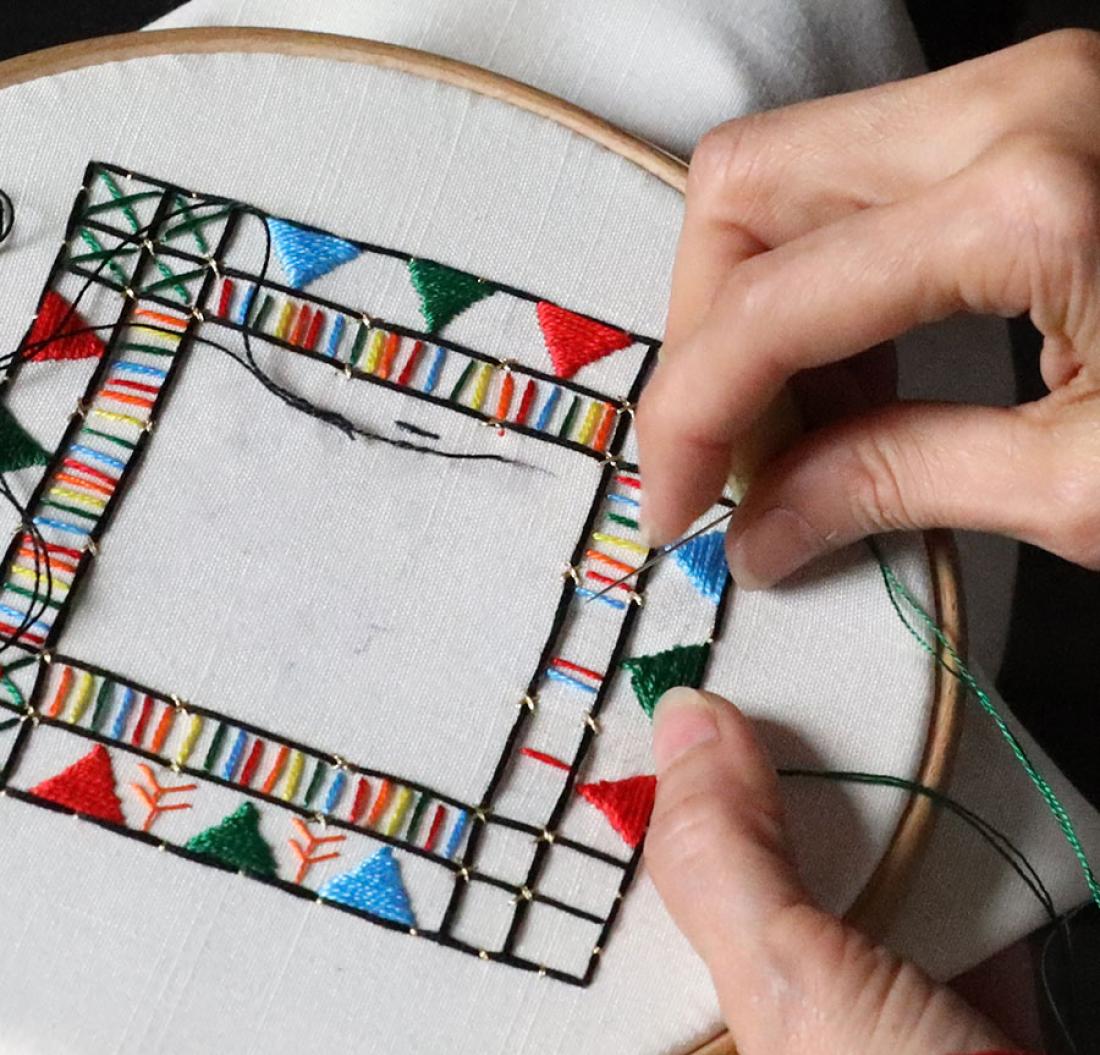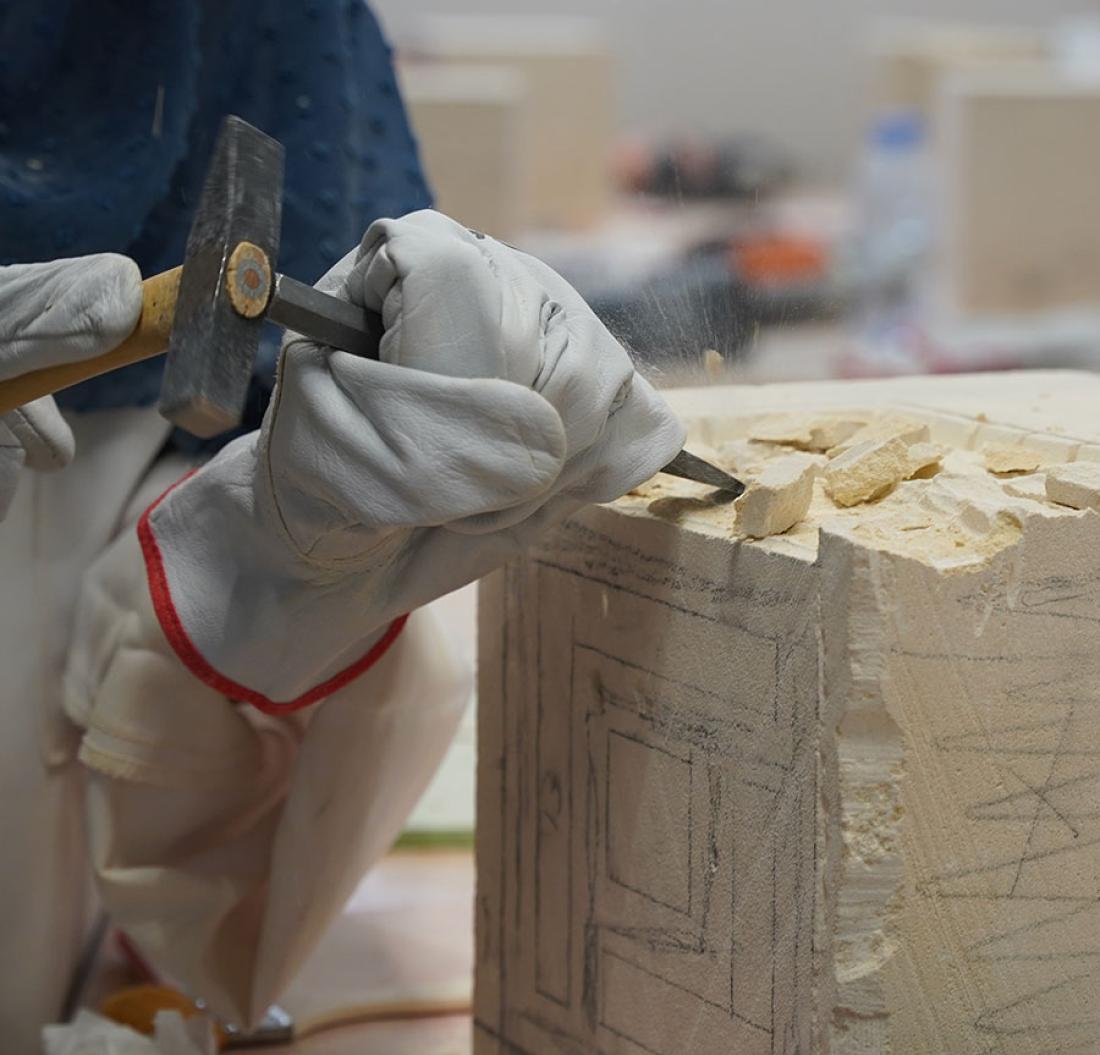Main navigation
Carpentry is one of the deeply rooted traditional crafts in Saudi culture, and a key element of Saudi woodworking art is the creation of "Mangour," an intricate architectural and artistic wooden latticework. Mangour relies on carving on wood, intricately interlocking the pieces innovatively and cohesively, without the need for nails or glue. The wood is cut into geometric shapes and assembled easily, as it can be effortlessly transported to various locations to be put together again.
We are pleased to partner with the King’s Foundation School of Traditional Arts and Jeddah Historic District to offer a new and unique training program focused on the wood crafts of AlBalad. The ‘Heritage of Albalad Program: Traditional Woodwork Crafts’ delivers the highest level of technical craft training including Tasheeq panelling and Mangour screens. Joinery techniques are essential to the constructions of doors as well as larger architectural features, such as rowasheen. Mangour screens, made of intricately carved interlacing wooden batons, are one of the most distinguishable of the ornamental crafts of Albalad. It is of the utmost importance for any trainee in the architectural crafts of Jeddah to learn the design language and methods for constructing these window grills and be part of the new generation of craftsmen engaging in architectural heritage projects in Albalad.
The course is structured in three terms as follows:
TERM 1: Introductory Level
- Geometry of AlBalad. Necessary drawing skills needed to recognise patterns related to the wood crafts and generate workshop drawings.
- Introduction to Woodwork - Basic Carpentry Skills. General knowledge of woodwork and carpentry practices.
- Geometry of Mangour. Learn to compose a mangour design and draft accurate preparatory drawings for the craft application.
- Introduction to Mangour. Learn the main types of frames and joinery used in the making of mangour screens.
TERM 2: Level One
This part of the course advances the students to Level 1. It requires students to specialise in two techniques:
- Ta’asheeq (traditional joinery). Learn to construct a decorative yet structurally sound panel for a Roshan design or door panel, using geometric shapes connected with interlocking Mortise and Tenon joints.
- Mangour (traditional screens). Explore the craft of mangour in a more in-depth way than the introductory course. Students will produce a larger sample with more complex angles, creating a variety of design features.
TERM 3: Level Two
Manufacturing items according to a set project.
Learning Outcomes:
By the end of the program, trainees will:
-
A general understanding and good working knowledge of the traditional wood crafts and decorative motifs found in Jeddah’s AlBalad.
-
A practical working knowledge of traditional tools, materials and techniques related to basic carpentry and joinery found in the heritage of AlBalad. Know how to work safely in a wood workshop.
-
Exposure to projects related to the restoration of traditional houses in AlBalad Jeddah.
|
Language |
Duration |
Number of Seats |
Program Time |
|
Arabic & English |
17 weeks |
10 trainees |
9:00 AM to 5:00 PM |
- The program is open to individuals aged 18 and above who are physically fit and strong.
- Those with basic carpentry skills, resilience, and patience.
- Full commitment to attending the program.
- The applicant must be a Saudi national or hold a valid Saudi residency.
- Trainees must adhere to the program's rules and regulations, including attendance requirements, at The Royal Institute of Traditional Arts.
- Achieve an 85% attendance rate in the total program hours and workshops to receive a certificate.
- Demonstrate discipline and follow institute instructions, exhibiting appropriate behaviors such as effective communication, teamwork, respect for peers and trainers, safeguarding institute property, and adherence to rules.
- Be able to work efficiently and achieving good standards of craftsmanship while working on individual pieces as a well as a set group project.
Other Courses
The Kingdom of Saudi Arabia is a major and unique contributor to the charming embroidery styles found throughout the Arab world. During this course...
Saudi Arabia is home to some of the richest and diverse geological deposits in the world. Its stones come in bright and vibrant colors and their...
This course offers a general introduction to the United Nations Educational, Scientific and Cultural Organization (UNESCO), its goals, and mandates...


